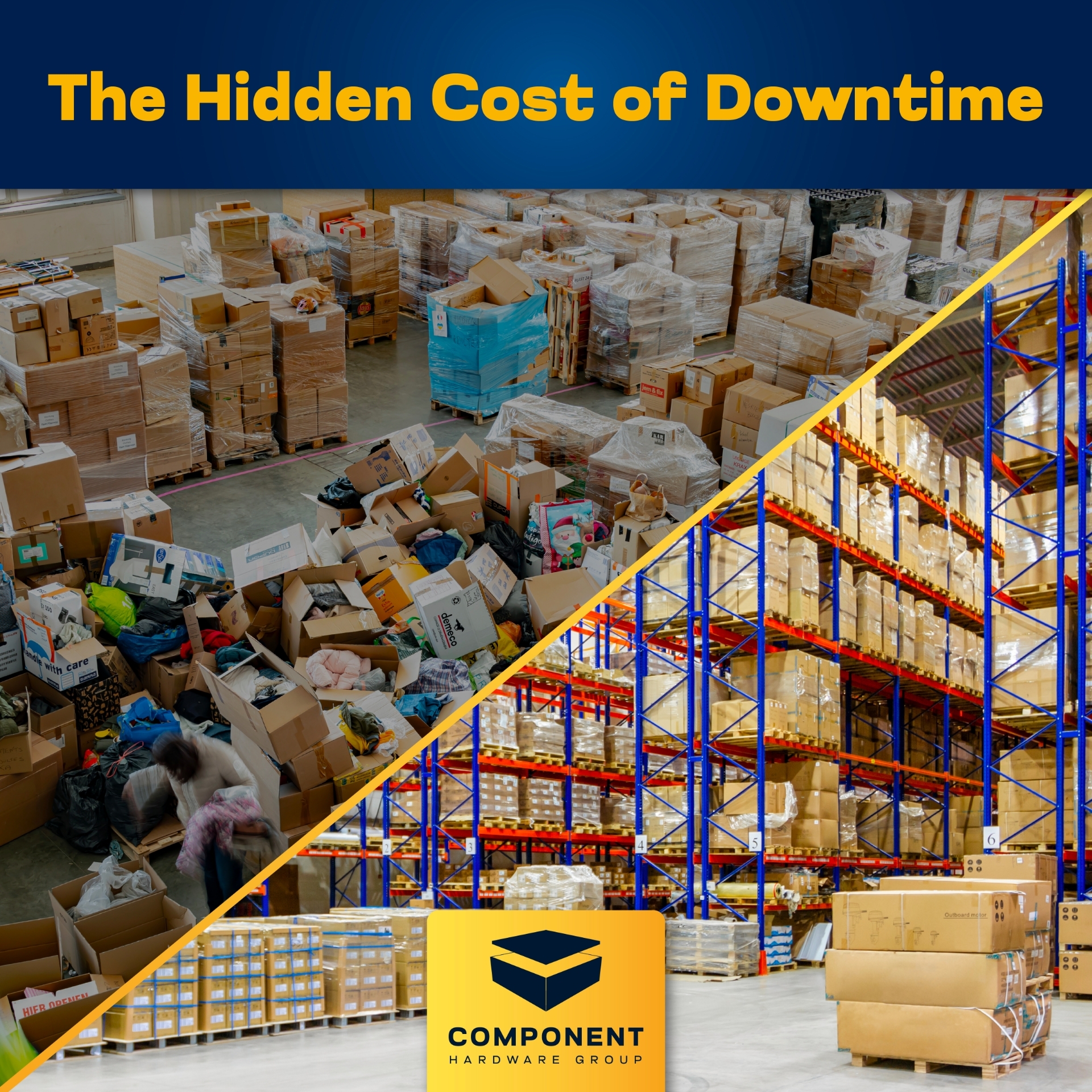
Every minute your production line sits idle costs you money. But what's the real price of unplanned downtime? It's the labor and output losses, missed deadlines, strained client relationships, and long-term damage to your bottom line.
There is an increasing demand for speed, precision, and reliability, and equipment failure or delays due to incompatible components can throw your entire operation off balance. That's where CHG's custom assemblies come in—designed to fit and perform.
This blog breaks down the cost of downtime and how choosing the right assemblies, customized to your needs, can safeguard your productivity and profits.
The Real Cost of Downtime: It's More Than You Think
According to a study by Aberdeen Research, unplanned downtime costs $260,000 per hour. While the actual figure varies across industries, even just 30 minutes of unscheduled stoppage can result in:
- Lost production output
- Idle labor costs
- Missed delivery windows
- Overtime pay to make up for lost time
- Waste or spoilage (especially in food or pharma sectors)
- Ripple effects across other processes or partners
Perhaps the most damaging consequence is the loss of customer trust. When you fail to deliver on time, your operations suffer, and so does your reputation.
Common Causes of Downtime in Assembly Processes
Let's take a closer look at what leads to downtime in manufacturing and how often the issue is component-related:
1. Component Fit Issues
Off-the-shelf parts might meet general specs, but they rarely account for the intricacies of your operation. Poor compatibility can lead to:
- Rework
- Assembly delays
- Mechanical failures
2. Multiple Vendor Coordination
When different parts come from other vendors, you often juggle timelines, compatibility concerns, and finger-pointing when something goes wrong.
3. Limited Scalability
As your production ramps up, a part that worked fine for 100 units may not work as smoothly for 10,000. That misalignment can lead to equipment stress and line stoppage.
4. Manual Adjustments
Non-integrated parts often require field adjustments, which take up time and add variability to your process.
How CHG Assemblies Solve Downtime at the Source
At CHG, we supply parts and engineer solutions. Our custom assemblies are designed to minimize risk and maximize reliability.
Here's how:
Designed for Fit and Function
Our team collaborates with yours to understand every detail of your application. We don’t guess; we engineer. That means:
- Tighter tolerances
- Better integration with your existing equipment
- No surprises during installation
Single-Vendor Simplicity
CHG handles the full assembly process: from sourcing components to ensuring final fit. You reduce the complexity of dealing with multiple suppliers and eliminate interdependency delays.
Built for Scale
Whether you're running a batch of 100 or 100,000, we scale with you. Our assemblies are validated under real-world conditions to support long-term, high-volume use.
Plug-and-Play Deployment
We streamline production with plug-and-play assemblies that reduce install time, minimize training needs, and speed up your launch process.
Real-World Example: Custom Assembly Saves Time & Labor
Let's say you're a foodservice equipment manufacturer that needs a valve and handles subassembly. You source the components from three vendors with slightly different specs. One is delayed, and the other doesn't align properly. You spend hours troubleshooting and field-modifying, resulting in lost time and inconsistent results.
Now imagine CHG delivers that same subassembly—fully integrated, tested, and aligned. Your install team plugs it in. There will be no downtime, no calls to engineering, just smooth sailing.
That's the CHG difference.
Downtime Metrics That Matter
If you're not tracking these metrics, you may not realize how much downtime is affecting your operation:
Metric | Why It Matters |
Mean Time Between Failures (MTBF) | Indicates how long systems run before issues occur |
Mean Time to Repair (MTTR) | Measures how long it takes to fix problems |
First Pass Yield (FPY) | Tracks how often products are made right the first time |
OEE (Overall Equipment Effectiveness) | A high-level view of productivity and reliability |
By using CHG custom assemblies, you'll likely see improvements in all of the above, because our components are built to reduce failure points and accelerate workflows.
The Long-Term ROI of Reduced Downtime
Many companies hesitate to invest in custom assemblies because they believe off-the-shelf options are "cheaper." But that's a short-term view.
When you account for:
- Downtime costs
- Labor inefficiencies
- Customer churn from late deliveries
- Field rework and warranty claims
…it becomes clear that reliable custom assemblies actually cost less over time.
What to Ask When Choosing an Assembly Partner
If you want to reduce downtime, ask these questions when evaluating potential vendors:
- Do they understand my industry?
- Can they customize to fit my specific process?
- Will they own the entire assembly process?
- Can they scale with me over time?
- Do they offer design input, not just supply parts?
If the answer is no, you might be setting yourself up for future disruptions.
Conclusion: Don't Let Downtime Drain Your Resources
Downtime is a profit killer. And while you can't eliminate every risk, you can dramatically reduce it by choosing components designed to fit your process like a glove.
CHG custom assemblies give you peace of mind, predictable lead times, and a reliable path to on-time delivery.
Want to avoid delay before it starts?
Reach out to CHG today and discover how custom can keep your operations running.





